Midwifery Studies (Extended Degree) BSc (Hons)
 Option for Placement Year
Option for Placement Year
 Option for ├█╠ęTV Abroad
Option for ├█╠ęTV Abroad

International
NorthumbriaŌĆÖs global footprint touches every continent across the world, through our global partnerships across 17 institutions in 10 countries, to our 277,000 strong alumni community and 150 recruitment partners ŌĆō we prepare our students for the challenges of tomorrow. Discover more about how to join NorthumbriaŌĆÖs global family or our partnerships.
View our Global FootprintBusiness
The world is changing faster than ever before. The future is there to be won by organisations who find ways to turn today's possibilities into tomorrows competitive edge. In a connected world, collaboration can be the key to success.
More on our Business ServicesResearch
Northumbria is a research-rich, business-focused, professional university with a global reputation for academic quality. We conduct ground-breaking research that is responsive to the science & technology, health & well being, economic and social and arts & cultural needs for the communities
Discover more about our ResearchAlumni
Northumbria University is renowned for the calibre of its business-ready graduates. Our alumni network has over 246,000 graduates based in 178 countries worldwide in a range of sectors, our alumni are making a real impact on the world.
Our AlumniIf youŌĆÖd like to receive the latest updates from Northumbria about our courses, events, finance & funding then enter your details below.
* At Northumbria we are strongly committed to protecting the privacy of personal data. To view the UniversityŌĆÖs Privacy Notice please click here
 Option for Placement Year
Option for Placement Year
 Option for ├█╠ęTV Abroad
Option for ├█╠ęTV Abroad

Are you passionate about providing safe and life-enhancing maternity care?
The BSc (Hons) Midwifery Studies has been developed to incorporate the future direction of midwifery practice, whilst drawing on the essential elements of midwifery. The programme develops students as a proficient practitioner; there is investment in personal capabilities, exploring values and developing critical abilities and research confidence. Approved by the , the BSc Midwifery Studies course has been designed to meet the requirements of the NMC, enabling you to apply for professional registration as a midwife on successful completion of the degree.
Students will learn through an equal combination of university and practice-based experiences, that enables achievement of the proficiencies necessary for professional registration as a midwife, with a critical appreciation of the challenges and strengths which exist in contemporary midwifery and a key focus on people's wellbeing.
You will engage in clinical learning opportunities during allocations within our high-quality Maternity Service Practice Learning Partners. You will leave this Midwifery degree as a confident graduate who is able to lead the midwifery care of childbearing people and their families.
Midwifery at Northumbria is ranked 9th in the UK by the Complete University Guide for 2025.
100% of our Midwifery graduates are in highly skilled employment or further study 15 months after graduation (Guardian University Guide, 2025).
Northumbria’s research in Allied Health Professions, Dentistry, Nursing and Pharmacy is ranked 8th in the UK for research power, out of 91 submissions (REF, 2021). This is a rise of 13 places from 21st in 2014.
Are you passionate about providing safe and life-enhancing maternity care?
The BSc (Hons) Midwifery Studies has been developed to incorporate the future direction of midwifery practice, whilst drawing on the essential elements of midwifery. The programme develops students as a proficient practitioner; there is investment in personal capabilities, exploring values and developing critical abilities and research confidence. Approved by the , the BSc Midwifery Studies course has been designed to meet the requirements of the NMC, enabling you to apply for professional registration as a midwife on successful completion of the degree.
Students will learn through an equal combination of university and practice-based experiences, that enables achievement of the proficiencies necessary for professional registration as a midwife, with a critical appreciation of the challenges and strengths which exist in contemporary midwifery and a key focus on people's wellbeing.
You will engage in clinical learning opportunities during allocations within our high-quality Maternity Service Practice Learning Partners. You will leave this Midwifery degree as a confident graduate who is able to lead the midwifery care of childbearing people and their families.
Midwifery at Northumbria is ranked 9th in the UK by the Complete University Guide for 2025.
100% of our Midwifery graduates are in highly skilled employment or further study 15 months after graduation (Guardian University Guide, 2025).
Northumbria’s research in Allied Health Professions, Dentistry, Nursing and Pharmacy is ranked 8th in the UK for research power, out of 91 submissions (REF, 2021). This is a rise of 13 places from 21st in 2014.
UCAS Code
Z075
Level of ├█╠ęTV
Undergraduate
Mode of ├█╠ęTV
4 years Full Time
Department
Nursing, Midwifery & Health
Location
Coach Lane Campus, Northumbria University
City
Newcastle
Start
September 2026
Fees
Fee Information
Modules
Module Information
Northumbria's Department of Nursing, Midwifery and Health offers students the opportunity to develop caring career that can transform the lives of patients, families and communities.
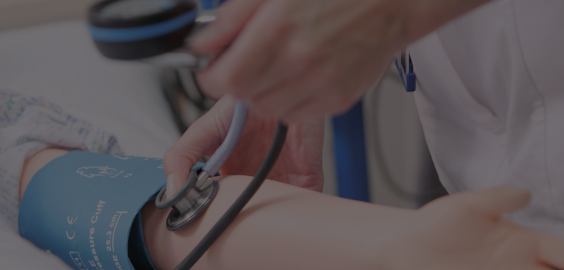
EXPLORE NURSING AT NORTHUMBRIA
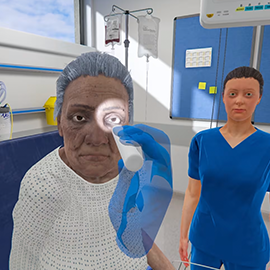
Simulated learning using virtual reality recognised as example of best practice in nursing education.

Northumbria University has been nationally recognised for the exceptional support it provides for nursing students after winning a coveted Times Higher Education award.
Read More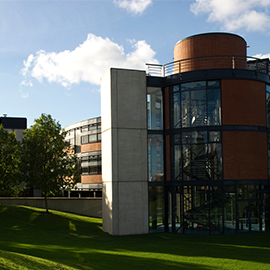
Northumbria to develop its Centre for Health & Social Equity.
Read the news story.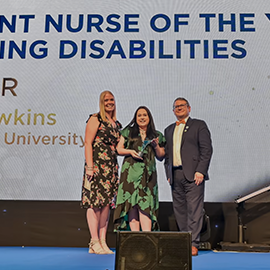
Nursing Student wins national award from the Student Nursing Times.
NMC are the nursing and midwifery regulators for the UK. Watch the videos below to help you understand what is expected of nurses and the key aspects of the role.
In this animation we look at professionalism and what this means for you as a registered professional.
We've made a short animation to help you understand what you can expect from your nurse or midwife.
The modular approach to your programme’s theoretical content, supports the application of theoretical knowledge to the clinical learning experiences of self-and others; for example, understanding of fetal heart rate patterns during labour and birth.
The experience of Service Users is a key learning tool throughout the programme and alongside the pregnant women and people, partners and families you meet on placement, you will have the university-based opportunities to hear the experiences of, for example, people with learning disabilities.
Other teaching and learning opportunities will include, lectures, seminars, workshops, and tutorials; clinical skills and simulation teaching in our clinical skills centre, and tutor guided online learning using our online teaching platform, BlackBoard Ultra. There is also the expectation that, as an adult learner, students will engage in a range of self-directed study and reflective activities. Group learning activities are supported where students learn collaboratively with and from other students and academic staff, developing support networks and a professional identity.
Students will be supported to engage in the development of professional, personal, and graduate capabilities via the personal tutor process and through the Midwifery Ongoing Record of Achievement, which is an e-portfolio which captures your progress towards Proficiency as a midwife.
During each clinical learning block there are a series of contacts with the University programme team to enable reflective learning, knowledge/skill consolidation and peer and tutor support across the programme.
The practice learning plan has been developed to enable exploration of continuity of care and carer across the programme and in differing contexts. In year one, this offers participation in care provision across the childbearing journey.
This culminates in year three, when student midwives undertake the continuity of carer role for a small group of women and people throughout their childbirth experience. Students will leave the programme confident in their ability to demonstrate the skills and attributes required for continuity of care and carer and with a positive mindset for working with women and people, new-borns, families, and communities.
This strengths-based approach results in midwives who take responsibility for their own professional practice and ongoing development.
In your final year, you will reach Proficiency in your Midwifery Ongoing Record of Achievement and complete a dissertation; these enable you to know that you have the range of knowledge and skills needed for contemporary midwifery practice as you apply for registration as a midwife.
This course is led by an academic team of experienced registered midwives who use evidence-based teaching approaches to share their research and professional knowledge in areas such as Continuity of Carer approaches, Fetal Alcohol Syndrome, parenting in LGBT+ communities, diabetes in pregnancy and the needs of asylum seekers.
You will also receive support from academics with experience in mental health, child and vulnerable adult safeguarding and family therapy.
Throughout the duration of your degree, you will have access to ongoing support through a dedicated personal tutor and our practice learning team (PLT). You will also have an allocated Practice Assessor (NMC approved assessor role, SSSA 2018) who will be there to provide on-site support and feedback on your progress whilst you undertake your placements.
To further enhance your knowledge and learning we regularly welcome external speakers who are experts in their field and actively working within the profession; in acknowledgement that midwives work in partnership with pregnant people and families, Service Users contribute to the teaching in university as Experts by Experience.
This course is based at our Coach Lane campus, which houses our Clinical Skills Centre – a purpose-built facility that will allow you to develop practical skills and gain valuable experience within a simulated scenario.
Our facilities are some of the most advanced and allow us to ensure your learning evolves in-line with the latest developments in this profession.
You will have access to our university library – which has been recognised as third best in the UK – and well-equipped working space, The Hub, which is open 24 hours a day, seven days a week.
Technology is embedded throughout all aspects of your degree, and you will receive ongoing support through our innovative e-learning platform, Blackboard, where you can access module learning and assessment information, learning materials, and reading lists.
Some of the programme content is delivered in our specialised clinical skills centre; here you have access to facilities and training equipment that is at the forefront of maternity care practice. Clinical Skills learning is embedded throughout the course, supporting you to develop a range of high-quality midwifery skills, as well as skills for working as part of a multidisciplinary health care team.
At the heart of each Northumbria campus, our libraries provide a range of study spaces and technology to suit every learning style.
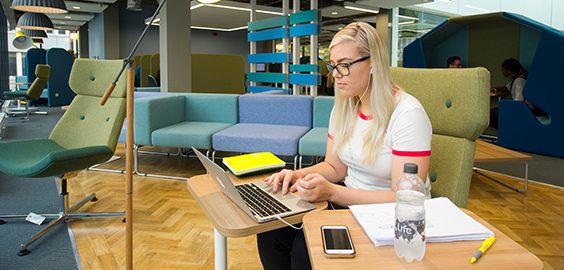
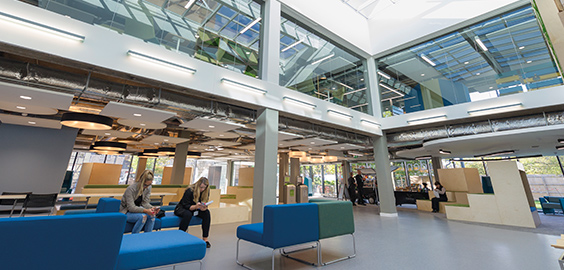

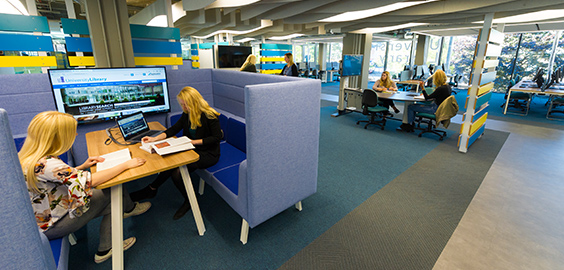

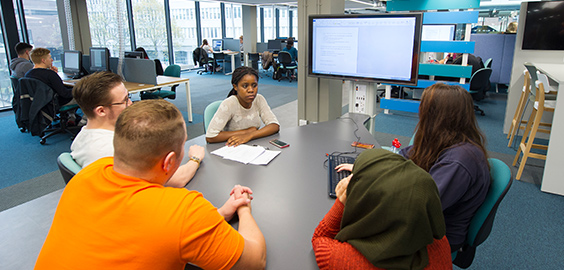
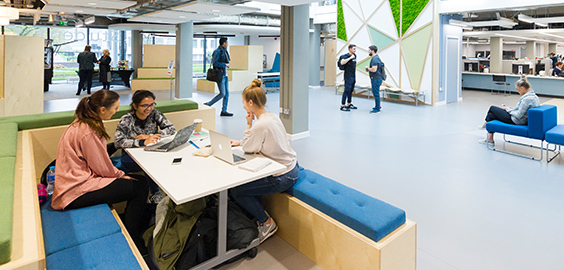
Research-rich learning is embedded throughout all of this course’s modules and some of our teaching team are research-active clinicians with their own areas of specialism. This research feeds through into the teaching, thereby informing student practice with cutting edge knowledge from the field.
The programme offers access to resources relating to current issues, research and developments within midwifery practice. In your final year you will be required to undertake your own research and discuss your findings with your peers and tutors, before producing a dissertation undertaken under the supervision of your tutor, your dissertation gives you the opportunity to conduct applied research in a field of midwifery that interests you most and to begin your journey as a research-rich practitioner.
We have an excellent award-winning reputation for providing innovative, flexible and wide-ranging professional learning and development opportunities for those working in health and social care.
Developed in-line with the proficiencies identified within the NMC standards and the values that underpin the NHS constitution, you will leave this course prepared for the workplace and with the relevant clinical experience to apply for professional registration.
On graduation you will have extensive experience of working with state-of-the-art equipment, in addition to relevant clinical experience.
Northumbria University boasts excellent links with the NHS and other organisations in the region and our students are renowned for their high level of skills, something that is demonstrated by our consistently high employment rates.
The work placements you will complete whilst studying for your degree will provide you with experience of working in a real-life, multidisciplinary environment, something that can prove invaluable when applying for jobs. Additionally, in your course you will have the unique opportunity to carry a small caseload of pregnant people and families through their childbirth experience.
Midwives can practice wherever pregnant people and their families are. UK maternity policy (Better Births 2016) requires that all maternity services provide Continuity of Carer for pregnant women and your programme prepares you to work within these approaches, making you highly employable. As your midwifery career progresses you may wish to pursue specialist posts where you care for people with highly specific needs such as substance misuse in pregnancy.
Or you may wish to develop your skills to provide leadership support to colleagues as a Professional Midwifery Advocate, clinical leadership as a clinical team leader, or educational leadership as a Practice Assessor for students or as a Practice Development Midwife. Your programme gives you a strong foundation from which to pursue service leadership, research and academic practice roles within your midwifery career. As a Graduate you may also wish to engage in further study or doctoral level qualifications.
For your next steps in nursing take a look at our Midwifery MSc.
Visit an Open Day to get an insight into what it's like to study Midwifery Studies. Speak to staff and students from the course and get a tour of the facilities.
64 to 80 Tariff Points?
From a combination of acceptable Level 3 qualifications which may include: A-level, T Level, BTEC Diplomas/Extended Diplomas, Scottish and Irish Highers, Access to HE Diplomas, or the International Baccalaureate.
Find out how many points your qualifications are worth by using the UCAS Tariff calculator:?
Northumbria University is committed to supporting all individuals to achieve their ambitions and we understand that every applicantŌĆÖs circumstances can be different, which is why we take a flexible approach when making offers for this course. We have a range of schemes and alternative offers to make sure as many individuals as possible are given an opportunity to study at our university regardless of personal circumstances or background. Typically, offers range from?64 to 80 UCAS tariff points, but weŌĆÖll assess your individual circumstances and potential when reviewing your application
To find out more, review our Northumbria Entry Requirement Essential Information page for further details?
Subject Requirements:
An A-level in a Science or Health related subject, or recognised equivalent.
GCSE Requirements:
Applicants will need Maths, English Language and a Science at minimum grade 4/C, or an equivalent.
Additional Requirements:
Applicants will be required to attend an interview.
Please note: Progression from Year 0 to Year 1 of this programme is subject to a suitable DBS Enhanced Certificate.? You will be contacted directly during the first year of the Extended Degree programme (Year 0) to complete this process.
Applicants must meet the Nursing and Midwifery Council's suitability for registration requirements.
International Qualifications:
We welcome applicants with a range of qualifications which may not match those shown above.
If you have qualifications from outside the UK, find out what you need by visiting?
English Language Requirements:
International applicants should have a minimum overall IELTS (Academic) score of 7.0, with a minimum writing score of 6.5 and all other components at a minimum score of 7.0, or?Occupational English Test (OET) with at least a grade B (350 to 440) in reading, listening and speaking, and at least a grade C+ (300 to 340) in writing.
For further admissions guidance and requirements, please visit?www.northumbria.ac.uk/admissionsguidance?Please review this information before submitting your application.
UK Fee in Year 1*: TBC
* Government has yet to announce 26/27 tuition fee levels.
International Fee in Year 1:
TBC
ADDITIONAL COSTS
TBC
* At Northumbria we are strongly committed to protecting the privacy of personal data. To view the UniversityŌĆÖs Privacy Notice please click here
Module information is indicative and is reviewed annually therefore may be subject to change. Applicants will be informed if there are any changes.
MW0416 -
The Professional Midwife: Foundations as Student and Scholar (20 Credits)
This is the first of the modules in your programme to develop you as a student and a scholar in line with the NMC Future Midwife Standards. The module will give you a strong foundation in understanding midwifery as a profession, understanding yourself as an aspiring professional, and understanding the academic and scholarly skills you will need to progress through the programme and practice as a midwife.
You will learn about the professional expectations of midwives, drawing on the history of the profession and exploring the NMC Code and future midwife standards (SPM 1.7). Concepts such as consent, informed choice, raising concerns and confidentiality will be introduced within the framework of the Code, human rights, ethical concepts and UK Law (SPM1.14).
Self-reflection on your personal values, attitudes, emotional and physical wellbeing will enhance emotional intelligence, and how such factors may impact on your developing professional practice will be explored (SPM 1.19, 1.26, 1.27, 5.14), as will an introduction to communication skills. Communication will focus on the understanding of self and others with a focus on building effective relationships with women (SPM 1.11, 1.12, 1.14).
Preparation for academic study at university will be a key part of the module with opportunities to reflect on effective learning styles and study skills, academic writing and referencing skills (SPM 1.23). Understanding the university library and the resources available to support your scholarly development including digital literacy will be central to your preparation for academic life (SPM 1.23).
Evidence based practice is central to the professional expectations of midwives and the module will introduce sources of knowledge and types of evidence as well as the skills required to effectively search for and locate reliable information (SPM 1.4, 1.5). Differing approaches to research will be introduced as will practice development and improvement methodologies (SPM 5.16, 5.17).
Peer support will facilitate reflection on your personal and professional development and support you in creating a personalised learning plan to enhance wellbeing and professional capability (SPM 1.26, 1.27, 5.13.1).
MW0417 -
Introduction to Universal Midwifery Care for Women and Families (20 Credits)
This module will introduce you to the theories, models and concepts which underpin the provision of universal midwifery care.
You will be introduced to the universal care that is provided by midwives; this midwifery provision is to women, neonates, partners, fathers, young adults/adolescents and families at entry to, during, and on exiting the childbirth continuum (SPM 3.11, SPM 3.12.1, SPM 3.12.2, SPM 3.12.3, SPM 3.12.4). This will include principles of assessment and screening (SPM 3.20) and the role of the midwife in providing information and support for example about minor disorders, lifestyle changes during pregnancy and the care needs of the newborn (SPM 4.4.2, SPM 4.4.3). You will also learn about the signs and symptoms of pregnancy, the principles and knowledge to plan care for a woman in labour and the midwife's role in providing care after the birth for women and babies.
Physiological adaptations will be explored, including female and male reproductive physiology, changes in pregnancy, the process of labour and adaptations following birth. You will study the development of the embryo, placenta, fetus and newborn (SPM 3.13.1, SPM 3.13.2 SPM 3.13.3), as well as an overview of body systems, such as the cardiovascular and immune system.
Evidence based practice is central to the provision of midwifery care and the module will develop your ability to identify and use appropriate evidence to support your practice. Equally important will be the recognition of the diverse needs of women, partners and fathers and all topics will be considered with reference to the professional expectations of respect and inclusivity as described in the Code (NMC 2019) and the Future Midwife Standards (NMC 2019). You will study the principles of public health including an understanding of the concept of health and the role of the midwife in promoting health and heathy lifestyle choices and optimising normal processes across the childbirth continuum (SPM 3.5, SPM 3.21).
MW0418 -
Continuity of Care: Models and Approaches (20 Credits)
This module will introduce continuity of care as a fundamental part of the Future Midwife Standards (NMC, 2019) and a key concept in your development as a professional midwife. The module will build on your learning about universal care in semester one and engage you thinking about how midwives can promote and provide continuity of care. (SPM 2.5). Midwifery philosophy will be explored as you are encouraged to reflect upon your personal and developing professional values. The value of listening to women and womenŌĆÖs experiences (SPM 1.10) as evidence for midwifery practice, especially as evidence of the needs of those in vulnerable groups, will be discussed.
Holism as an approach to health and health care provision will be explored through considering primary health care and assessment of care needs for women, very young children (SPM 3.13.4, SPM 3.22) and families. Adolescent health and wellbeing (SPM 3.16.1) as transition from child to adult will be explored in the context of young mothers and fathers. Holistic approaches to care (SPM 2.7) will include topics such as spirituality and cultural awareness. Health promotion and parenting education (SPM 3.16.2) will also be introduced and applied to midwifery practice.
You will learn about the organisation of care within the maternity services, the history of the NHS (SPM 2.1) and current health and public health policy including Better Births and its foundation of personalised care through partnership working (SPM1.13). Differing models and approaches to midwifery practice (SPM 2.2) will be introduced and will be linked to exploration of care planning, place of birth and alternatives to NHS service provision. Central to this theme is the evidence base for continuity of care and the Quality Framework for Maternal and Neonatal Care (SPM 3.25).
You will be introduced to multi professional and multiagency working and explore the relationships and communication needed to provide seamless integration of health and social care (SPM 2.4). Topics will include team working, understanding othersŌĆÖ roles and the importance of professional communication You will have opportunities to explore how you demonstrate value and respect for each other through peer review developing skills in building relationships which promote wellbeing and develop capability.
MW0419 -
Additional Midwifery Care for Women and Families: Introduction and Context (20 Credits)
As a midwife you will care for and support women, newborn infants and their families who require additional care. This module introduces you to the range of knowledge required to begin to recognise and care for women and their families with additional needs and their families throughout the childbirth continuum (SPM 4.1). You will study a range of subjects to facilitate this learning and support your development as a practitioner.
The module will introduce epidemiological data on local, national, and international prevalence and risk, to develop knowledge and awareness of additional care needs that may affect women, newborn infants, and families. This will include consideration of perinatal and maternal morbidity and mortality and initiatives such as Safer Births (SPM 4.2). The concept of health studied in semester one will be developed to consider ill health, health inequality and determinants of health (SPM 1.17.1, SPM 3.2).
You will be involved in first line identification, assessment and management of social, medical, obstetric, neonatal, and mental health complication for women, babies and families. Public health challenges such as obesity, alcohol and drug misuse will be explored alongside the impact of childbirth on long term health outcomes for women and neonates (SPM, 3.5, SPM 4.4.3). Common long term health conditions such as asthma and hypertension and their impact on pregnancy and childbirth will be considered (SPM 4.3). Learning activities will build on your understanding of normal physiology to explore the pathophysiology of these conditions. The role of the midwife in the care and management of these conditions will be explored alongside the role of other professionals and the need for referral, working collaboratively with parents and with other professionals and agencies when additional needs arise (SPM 2.9, SPM 4.9). Additionally, mental health and ill health will be introduced, including high prevalence concerns such as stress, anxiety and depression.
Your understanding of womenŌĆÖs health will be developed so that you understand common gynaecological conditions and sexually transmitted infections and their impact of womenŌĆÖs physical and emotional wellbeing (SPM 4.3). This will include an introduction to early pregnancy complications and loss (SPM4.11). Common neonatal conditions which occur within the scope of term newborn care will also be introduced so that you understand when referral may be appropriate (SPM 4.4.3).
You will develop knowledge around the cultural and spiritual elements that can create additional needs for women. The concepts of diversity and disability will be discussed considering the additional care needs for women and the role of the midwife in ensuring anti discriminatory practice (SPM 1.8, SPM 1.9). Approaches to inclusive practice will be further explored considering other protected characteristics such as ethnicity and differing health outcomes. You will be supported to reflect on your personal values and cultural awareness by the module team.
MW0420 -
Foundations of Skilled Midwifery Practice (40 Credits)
This module is the first of your programmed practice learning modules and enables you gain a strong foundation in understanding physiological processes to develop your clinical knowledge and skills towards becoming a ŌĆśThe midwife as Skilled PractitionerŌĆÖ (SPM - Domain 6 proficiencies). This will enable you to support, care and work in partnership with women through all aspects of the childbirth continuum.
The emphasis of your learning will be the underpinning theory and clinical skills that are essential for safe and effective midwifery care. To do this you will work alongside clinical midwives to develop your interpersonal skills, to understand professional midwifery practice in the clinical setting (SPM 1.1, SPM 1.2) as well as consolidating the clinical skills you simulated within the university setting.
You will experience the 24-hour/seven-day care provision during your clinical practice experiences, enabling you to develop an understanding of women, their babies and familyŌĆÖs needs; the continuity requirement for you to follow the journey of a number of women through your first year enables you have an appreciation of maternity care from service usersŌĆÖ perspectives. You will work in partnership with women (under supervision) (SPM 3.23) to ensure a woman centred approach to care. Throughout the module, you will have the opportunity to reflect upon your skills and personal development, as an individual and as a group. This will also include preparation for placement including preparation for being supervised and assessed.
Safe practice is embedded in the module as you develop knowledge and skills such as infection control, life support, safe moving and handling techniques, and the management of medicines. Using case scenarios and reflection these will be applied to situations from your practice experience which include for example peri- operative care, surgical birth and neonatal care. Discussion will include an introduction to childbirth emergencies (SPM4.7. Patient safety, human factors and safeguarding will also be introduced as you begin to consider the wider aspects of healthcare provision and how midwives contribute and communicate within this context (SPM 1.24, SPM 2.10, SPM 3.15, SPM 5.6). The UNICEF Baby Friendly Initiative standards will form an important part of the module too, in relation to infant feeding and early relationship building.
The theory and practice experiences you will encounter in this module will enable you to work towards the required NMC Standards of proficiency for midwives (Towards Domain 6 proficiencies). A variety of skills will be taught on this module including venepuncture, safe management of medication (including drug calculations via SafeMedicate or equivalent drug calculation/medicines management exam platform) (SPM. 1.23, SPM 3.19), injection techniques, infant feeding including breastfeeding (positioning, attachment and hand expression) and safe artificial feeding (SPM 3.6), abdominal palpation and fetal heart auscultation, examination of the newborn, vital observations, infection prevention, control and antimicrobial stewardship (SPM 3.10,), and simulation of common labour and birth events. These taught skills enable you to rehearse the technical skill away from clinical learning and care provision so that you can have protected time for considering the theory and physiology that underpins these techniques. Opportunities for peer coaching will be available from across the midwifery programme to enhance learning experiences.
RV5001 -
Academic Language Skills for Nursing, Midwifery and Health; Social Work, Education and Community Wellbeing (Core ŌĆō for International and EU students only,0 Credits)
Academic skills when studying away from your home country can differ due to cultural and language differences in teaching and assessment practices. This module is designed to support your transition in the use and practice of technical language and subject specific skills around assessments and teaching provision in your chosen subject. The overall aim of this module is to develop your abilities to read and study effectively for academic purposes; to develop your skills in analysing and using source material in seminars and academic writing and to develop your use and application of language and communications skills to a higher level.
The topics you will cover on the module include:
ŌĆó Understanding assignment briefs and exam questions.
ŌĆó Developing academic writing skills, including citation, paraphrasing, and summarising.
ŌĆó Practising ŌĆścritical readingŌĆÖ and ŌĆścritical writingŌĆÖ
ŌĆó Planning and structuring academic assignments (e.g. essays, reports and presentations).
ŌĆó Avoiding academic misconduct and gaining credit by using academic sources and referencing effectively.
ŌĆó Listening skills for lectures.
ŌĆó Speaking in seminar presentations.
ŌĆó Presenting your ideas
ŌĆó Giving discipline-related academic presentations, experiencing peer observation, and receiving formative feedback.
ŌĆó Speed reading techniques.
ŌĆó Developing self-reflection skills.
MW0519 -
The Professional Midwife: Developing the Student and Scholar (20 Credits)
This module builds on learning in year one to further develop your understanding of the professional expectations of you as a student midwife and will develop your scholarly skills in preparation for the project module in year three.
You will learn about the professional expectations (SPM 1.1) of midwives in relation to challenges in practice. Recognising and raising concerns and responding to service user feedback along with effective challenging of others will be discussed. Consent, capability and advocacy will be critiqued within the framework of the human rights (SPM1.3), ethical concepts, and UK Law (SPM 1.2).
Reflection on professional identity will be key to further exploration of self and the development of relationships with women, their families and other professional groups (SPM1.25). There will also be exploration of social and other media (SPM1.17.3) as a form of communication and how these impact on midwifery practice.
There will be opportunities to revisit previous assessments and feedback and to revisit referencing and academic writing as well as search and retrieval skills. Scholarly skills in communicating via presentations, conferences and publications will be discussed.
You will increase your understanding of the evidence that supports effective practice via discussion of research methodologies, methods and critical appraisal tools. (SPM1.4) Real world research will be used to enable application to midwifery practice (SPM1.5, (SPM5.16)) including consideration of research ethics, consent, and service user involvement. You will consider policy and guidelines and how these are applied and understood by a range of stakeholders including women and their families (SPM1.11). Examples of quality improvement and practice development tools will also be presented for discussion and application to future practice (SPM5.16)
Throughout the module you will be continuing to be supported by your personal tutor who will facilitate reflection on your personal and professional development and facilitate a personalised learning plan to enhance wellbeing and professional capability in making midwifery contributions that inform professional practice (SPM5.17).
MW0520 -
Provision of Universal Midwifery Care for Women and Families (20 Credits)
This module will develop your understanding of the theories, models and concepts which underpin the provision of universal midwifery care. The module will build on knowledge gained in year one and facilitate further application and analysis with some deeper understanding of topics linked to effective practice in 21st century.
You will consider and appraise the planning and provision of universal care during the childbirth continuum (SPM 3.1). This will include further exploration of assessment and screening such as monitoring maternal and fetal wellbeing and post-natal recovery and means to optimise outcomes (SPM 3.17.1, SPM 3.20, SPM 4.4.1). Prioritising physiological approaches and optimising the environment will discussed and studied (SPM 3.21, SPM 3.23, SPM 3.24.) The concept of pain and womens experiences during childbirth will be discussed and considered including differing approaches to relieving and coping with pain.
Knowledge of reproductive physiology will be explored in more depth through study and discussion of topics such as genetics and epigenetics. Physiological adaptations in the fetus will be studied in more depth to enable application to assessment of wellbeing during pregnancy and labour ŌĆō for example fetal growth and development, responses during labour and early neonatal development (SPM 3.13.2, SPM 3.13.3. SPM 4.4.4) Understanding infection and communicable diseases will be developed through exploration of relevant microbiology, immunology, pharmacology and Pharmakinetics (SPM 3.18). These lay the foundation for the for understanding and demonstrating the midwivesŌĆÖ role in antimicrobial stewardship
You will develop your knowledge of public health by focusing on the health of women, neonates and the wider family and the national screening programme for these groups. Sexual health will be developed further with discussion of fertility and contraception and the application to the role of the midwife (SPM 3.4). Public health measures to manage communicable disease such as immunisation programmes will be appraised.
Evidence based practice continues to be a key theme the module will develop your ability to identify and appraise appropriate policy and evidence to support your practice. Equally important will be the recognition of the diverse needs of women, partners, fathers and young adults/adolescents (SPM3.11, SPM 3.12.1, SPM 3.12.2, SPM 3.12.3, SPM 3.12.4) and all topics will be considered and appraised in light of the professional expectations of respect and inclusivity as described in the NMC Code (2018) and the Future Midwife Standards (NMC 2019).
MW0521 -
Continuity of Care: Leadership and Collaboration (20 Credits)
This module will develop your understanding of continuity of care within midwifery practice and the leadership and collaboration skills required to meet the Future Midwife Standards (NMC 2019).
You will explore and analyse the evidence base which informs differing models (SPM 2.2, SPM 2.3) of care including continuity- identifying opportunities and challenges (SPM 5.19). You will reflect on and critique the application of health policy within the maternity services with a specific focus on the personalised care agenda (SPM1.22) and what this means for women and midwives. You will also consider health policy outside the UK and global maternal and neonatal health. Debates about the place of birth will be developed with reflection on practice experience and the place of professional bias and advocacy in facilitating choice (SMPRMP 5.3). Human rights (SPM 1.3) and ethics which inform health care provision and how these are applied to informed choice, consent and shared decision making will be explored. Inclusive practice will be examined, and cultural awareness developed further to address inequalities in womenŌĆÖs experiences and outcomes (SPM 1.8., SPM 1.9, SPM 1.15, SPM 1.16., SPM 2.12) Perspectives on inequality such as critical theory and feminism will inform your learning (SPM 1.17.1),
The principles of leadership from a personal, professional, and organisational perspective will be discussed with a focus on working with others and building effective working practices and relationships (SPM 2.4, SPM 2.5, SPM 5.8, SPM 5.20)) within and across professional boundaries (SPM 2.8, SPM 2.11). How organisations and individuals can manage change to improve the quality (SPM5.1, SPM 5.9, SPM 5.11) of services will also be explored with a focus on collaborative models of stakeholder and the service user engagement (SPM 2.8, in leading, planning, evaluating and improving services.
You will reflect on emotional intelligence and apply sociological and psychological theories to effective communication and relationship building (SPM 2.7, SPM 3.3, SPM 5.13.2). Effective communication will also include consideration of how to share information with women and perspectives on health education and parent education (SPM3.8, particularly for vulnerable or perceived disengaged groups such as young fathers (SPM 3.17.3. These approaches will further develop your awareness of self as a communicator and how to build capability through strength-based feedback (SPM 5.13.5) and information sharing.
MW0522 -
Additional Midwifery Care for Women and Families: Presentation and Management (20 Credits)
In this module you will develop further depth and breadth of knowledge and understanding of additional physical, psychological and social (SPM 4.1) care needs that may arise throughout pregnancy and childbirth. You will have the opportunity to apply and analyse the implications of these additional care needs in the context of clinical practice, including first line assessment, management, (SPM 4.8) support, and care for the women, Newborn infants and their families. The interdisciplinary roles of professionals (SPM 2.11), multiagency teams and care pathways (SPM 4.11) involved when additional care needs arise will be explored with emphasis on the midwifeŌĆÖs role. You will study a range of evidence based (SPM 4.6) subjects to facilitate this learning and your development as a practitioner.
The module will analyse relevant epidemiological data (SPM 4.2) e.g., MBRRACE Reports to identify significant additional care needs that may affect women, newborn infants and their families and the subsequent implications for the midwife's role.
Examples of these additional needs include:
┬Ę Conditions arising during pregnancy such as, multiple pregnancy, pre-eclampsia, polyhydramnios
┬Ę Complications of labour and birth e.g., malposition, malpresentation, postpartum haemorrhage, postnatal depression, jaundice and infection in the neonate.
┬Ę Pre-existing medical conditions e.g., hypertension, cardiac disorders, diabetes, cervical cancer, epilepsy, mental ill health e.g. pre-existing depression,
┬Ę Aspects of public health e.g., Impact and management of obesity (SPM 4.3)
Related pathophysiology will be explored throughout with consideration of the impact of the additional need on pregnancy and the impact of pregnancy on the additional need. You will further develop skills in holistic and physical assessment (SPM 4.6) methods to enable the recognition of deterioration, referral, and escalation (SPM 4.6), along with the role of the midwife in continuity and co-ordination of care (SPM 2.11), including advocacy for women and newborn infants (SPM 4.10) with additional needs.
MW0523 -
Developing Skilled Midwifery Practice (40 Credits)
This practice module enables you to build on your understanding of the physiological processes that were developed in year one. The module will enable you to support, care for and work in partnership with women through all aspects of the childbirth continuum (SPM 3.23, working to optimise normal physiological processes (SPM 3.21) whilst having the opportunity to focus on the additional care skills (SPM 3.25) that may be required within the maternity services and wider clinical settings. Building on existing knowledge of the normal physiology and the more frequent mal adaptations to pregnancy, this module introduces you to emergency and high dependency scenarios within midwifery care. In addition, it addresses the 2015 Obstetric Anaesthetists Association Maternity Enhanced Care Competencies to prepare you for registration and to be able to provide appropriate care for those with complex needs. SPM 4.6, SPM 4.7, SPM 4.8)
The emphasis of your learning will be to provide women-centred care in complex situations (SPM 1.12, SPM 1.13, SPM 3.17, SPM 4.4.1, SPM 4.4.2, SPM 4.4.3 ) , for this you will need to develop your knowledge and skills in relation to human factors (SPM 1.19, SPM 5.4) , patient safety (SPM 5.2), referral and decision-making (SPM 1.11), safeguarding, childbirth emergencies and will develop your ability to recognise, diagnose and manage serious complications (SPM 4.6, SPM 4.7, SPM 4.8). These areas of practice require that you are able to understand and work across professional boundaries, recognising the impact of the context of care provision (SPM 1.9) on the personal and professional skills you need to demonstrate in practice (SPM 1.18, SPM 1.27). There will be opportunities for peer coaching and simulation to develop these new skills. The UNICEF Baby Friendly Initiative standards will continue to underpin infant feeding and relationship building content within the module, considering more complex circumstances for both mother and infant, such as mastitis, prematurity and hypoglycaemia.
There will be further development of skills introduced in year one including perineal care and suturing, episiotomy and new skills such as cannulation; simulation is used to develop the technical skill aspect of these skills, so the in vivo rehearsing of these additional care skills focuses on the utilisation of these in complex, urgent and multidisciplinary contexts. Safe practice is embedded in the module as you revisit skills such as infection control, life support, the management of medicines using SafeMedicate or equivalent drug calculation/medicines management platform (SPM 1.23) and develop your numeracy and medicines knowledge to support your practice (SPM 3.18, SPM 3.19) alongside record keeping in emergency contexts (SPM 1.24). Using case scenarios and reflection (SPM 5.2) these will be applied to situations from your practice experience which include for example emergency and high dependency situations within midwifery care, peri and post-operative care, surgical birth and neonatal care as well as experiences gained from outside the maternity settings (SPM 2.6, SPM 2.10, SPM 4.5, SPM 4.10).
Preparation for being supervised and assessed will be included in the module prior to placement as will appropriate personal and group reflection on practice experiences. You will work alongside clinical midwives and other health and social care professionals to fully experience the wider scope of care provision for women and their families who may have ŌĆśadditional care needsŌĆÖ.
MW0631 -
The Professional Midwife: Consolidation as Student and Scholar (40 Credits)
This module completes your development as a student and a scholar in line with the NMC Future Midwife Standards (NMC 2019).
You will have the opportunity to consolidate your understanding of evidence-based practice and to contribute to the understanding of an aspect of midwifery practice by undertaking an evidence review and thematic analysis (SPM1.4, SPM 5.7,) which culminates in you undertaking a Critical Evaluation of Midwifery Practice in a Capstone Project. Differing research philosophies, methodologies and approaches will be explored to support this development. The module and project will further develop your academic writing style and understanding of the research process (SPM1.5) to enable possible publication of future research and practice development.
You will consolidate your understanding of the impact of professional and personal attributes on the role of the midwife and practice development and improvement. Concepts such as, organisational contexts, values and discourses, local and national priorities will be explored (SPM3.2). You will further develop your understanding of personal and professional qualities relating to communication such as, advocacy, and effective partnerships with women and how these may impact on professional practice and practice development.
Throughout the module you will have continued support from your personal tutor who will facilitate reflection on your personal and professional development, plus you will be allocated to a subject specific supervision group that will utilise peer support towards completion of your Capstone project. The project will involve the selection of an aspect of midwifery practice which you will critique using research and practice evidence and apply this to contemporary woman centred midwifery care (SPM3.21, SPM3.23, SPM 5.13.4)
The module will assist you to deconstruct and reconstruct practice (SPM5.16, SPM 5.17) using in depth analysis of the evidence base, creative thinking, alternative theoretical perspectives relevant midwifery theory.
MW0632 -
Appraising Universal Midwifery Care for Women and Families (20 Credits)
On this module you will develop and consolidate knowledge of theories and approaches that underpin quality maternal, fetal (SPM3.13.1) and newborn care (SPM 3.13.2, SPM 3.13.3) for all women. You will critique how this knowledge is used within midwifery practice to assess needs, promote normality, and build capability in women and families (SPM 1.13, SPM 3.17.1, SPM 5.13.5). You will examine the wider context within which midwifery care takes place (SPM5.10). This will enable you to engage with factors, such as public health policy, that influence the care and support of service users to promote normal physical, emotional and psychological processes. This is an opportunity for you to consolidate and advance your clinical knowledge and discuss and apply models of clinical and decision making, whilst challenging the impact of interpersonal and cultural biases via reflection on your personal values and philosophy of midwifery practice. Module content will explore subjects such as public health policy initiatives, debates around place of birth and midwife led care, organisation of care, medical / technocratic and social / holistic approaches philosophies of care (SPM 3.20) and theory of ŌĆśMidwifery Guardianship (SPM 1.22, SPM 3.24, SPM 3.25)ŌĆÖ.
More informationMW0633 -
Additional Midwifery Care for Women and Families: Integration and Co-ordination (20 Credits)
This module explores complex issues around ill health and their influence on childbearing and maternity care and encourages a critical appraisal of health policy and the evidence base for practice. You will examine complexity in relation to the physical, psychological and social wellbeing of women and families, and the role of the midwife as the co-ordinator of care. You will develop confidence and competence around effective collaborative working and inter-disciplinary practice in relation to complex cases, building capability as you approach qualification. The content of this module gives you the knowledge that you will require to confidently to identify and respond to the additional care needs of women and families. This content is;
ŌĆó Public health policy relating to maternity care (SPM 1.17.1, SPM 1.17.2, SPM 2.12, SPM 3.2, SPM 3.3, SPM 3.5)
ŌĆó Perinatal mental health: more complex conditions (contributing to Proficiencies in Domain 6, e.g., SPM 6.71.11, SPM 6.81, SPM 6.56)
ŌĆó Bereavement, end of life care (contributing to Proficiencies in Domain 6, e.g., SPM 6.69.7, SPM 6.80.6)
ŌĆó Vulnerability: parenting (SPM 3.9, child and adult protection, human rights, substance misuse; promoting capability in vulnerable women and families (SPM 1.10, SPM 1.13, SPM 1.16, SPM 1.17.3, SPM 2.6, SPM 2.7, SPM 2.8, SPM3.1, SPM 3.7, SPM 3.17.3, SPM 4.4.5)
ŌĆó Inter-disciplinary collaboration in complex circumstances: care/support/referral, human factors (SPM 1.6, SPM 3.24, SPM 5.8)
ŌĆó Safer births, birth outside of guidelines (SPM 4.1, SPM 4.2, SPM 4.3, SPM 4. 8, SPM 4.10, SPM 5.2, SPM 5.7)
ŌĆó Promoting non-discriminatory care, reasonable adjustment (SPM 1.8, SPM 3.22, SPM 3.27, SPM 5.3)
ŌĆó Legal and ethical frameworks for professional practice in complex cases (SPM 1.2, SPM 1.3, SPM 1.21)
MW0634 -
Proficient Midwifery Practice (40 Credits)
This module enables you to demonstrate that you have met the clinical proficiencies required by the NMC Standards for pre-registration midwifery education and can safely and effectively make the transition from student midwife to newly qualified midwifery registrant (SPM 1.1, SPM 1.6, SPM 1.18). This module is the ŌĆścapstoneŌĆÖ of your learning in relation to the five practice categories set out in the Framework for Quality Maternal and Newborn Care (QMNC) .
The emphasis of your learning will be your adaptive role in leading and managing universal midwifery care for women and neonates (SPM 3.6) and contributing additional midwifery care that is tailored to womenŌĆÖs individual circumstances (SPM 1.5, SPM 1.13, SPM 2.7, SPM 2.9) and needs. In doing so you demonstrate increasing autonomy in your practice. Continuity opportunities are pivotal to your practice; these provide you with the opportunity to develop your practice and confidence and demonstrate that you have achieved the proficiencies required to become a midwife who can be ŌĆświth womanŌĆÖ on the childbearing continuum journey, however that journey evolves (SPM 1.10, SPM 1.11, SPM 1.12, SPM 1.14, SPM 1.22). Practice-based learning experience will provide replica opportunities for you to develop personal and professional resilience and resources to support service transformation and change that the role of the midwife requires; for example, Continuity contributions to being ready to lead universal care of the women and neonates mean that you will develop the midwifery skills necessary (SPM 1.2, SPM 1.21) to deliver universal screening processes and procedures such as those described in the Antenatal Screening Programme, the Fetal Anomaly Screening Programme and the Newborn Infant Screening Programme, including NIPE (all Public Health England national screening programmes). . The UNICEF Baby Friendly Initiative standards will continue to underpin infant feeding and relationship building content within the module, with a particular focus on support, referral and managing challenges in an individualised and holistic way as you practice with greater autonomy.
Being Safe is embedded within the module as you revisit skills such as team working (SPM 5.4) infection control (SPM 3.10), life support and the management of medicines (SPM 3.19, SPM 1.23) and apply your knowledge ŌĆśin vivoŌĆÖ to reduce risk whilst at the same time holding the experience of women and families central to your approach (SPM 1.9, SPM 2.5). The expectations of professional practice and the NMC Code will be consolidated (SPM 1.1), for example, in relation to the concept of advocacy (SPM 1.15) where you would effectively apply the NMC Code to the protection of vulnerable children and adults, including in end-of-life care (SPM 4.11).
You will be signposted to revisit the theories and approaches explored throughout your programme and apply these to midwifery practice (SPM 2.1, SPM 2.1) as you consolidate your academic, professional and scholarly skills (SPM 5.18). The module provides a conduit for the integration of new theoretical knowledge gained throughout Year 3 into the clinical environment (SPM 2.3 and into your emerging personal style of midwifery practice (SPM 1.4), ready for your registration as a midwife. These areas of practice require that you are able to understand and work effectively across professional boundaries (SPM 1.19, SPM 2.4. SPM 2.11, SPM 5.12), recognising the impact of the context of care provision (SPM 1.7) upon the personal (SPM 1.26) and professional skills you need to demonstrate in practice (SPM 1.24, SPM1.27, SPM2.5, SPM 2.9, SPM 5.2, SPM 5.5, SPM 5.6, SPM 5.13.6).
You will be encouraged to address key concepts including transformational leadership skills and your ability to work effectively as part of an interprofessional team (SPM 5.9, SPM 5.14, SPM 5.15). You will contribute towards supporting continuity opportunities, developing and rehearsing leadership skills as you work with healthcare support workers/ maternity support workers/ more junior student midwives (SPM 5.21). You will utilise service user feedback and practice learning team feedback to evaluate your own care provision and feed this forward into your practice as a midwife, maximising the quality of experience and outcomes for women and strengthening your effectiveness as a colleague in maternity care (SPM 5.19, SPM 5.20).
To start your application, simply select the month you would like to start your course.
Home or EU applicants please apply through UCAS
International applicants please apply using the links below
SEPTEMBER
2026
Our Applicant Services team will be happy to help. They can be contacted on 0191 406 0901 or by using our .
Full time Courses are primarily delivered via on-campus face to face learning but could include elements of online learning. Most courses run as planned and as promoted on our website and via our marketing materials, but if there are any substantial changes (as determined by the Competition and Markets Authority) to a course or there is the potential that course may be withdrawn, we will notify all affected applicants as soon as possible with advice and guidance regarding their options. It is also important to be aware that optional modules listed on course pages may be subject to change depending on uptake numbers each year.
Contact time is subject to increase or decrease in line with possible restrictions imposed by the government or the University in the interest of maintaining the health and safety and wellbeing of students, staff, and visitors if this is deemed necessary in future.
Northumbria University is committed to developing an inclusive, diverse and accessible campus and wider University community and are determined to ensure that opportunities we provide are open to all.
We are proud to work in partnership with to provide Detailed Access Guides to our buildings and facilities across our City, Coach Lane and London Campuses. A Detailed Access Guide lets you know what access will be like when you visit somewhere. It looks at the route you will use getting in and what is available inside. All guides have Accessibility Symbols that give you a quick overview of what is available, and photographs to show you what to expect. The guides are produced by trained surveyors who visit our campuses annually to ensure you have trusted and accurate information.
You can use Northumbria’s AccessAble Guides anytime to check the accessibility of a building or facility and to plan your routes and journeys. Search by location, building or accessibility feature to find the information you need.
We are dedicated to helping students who may require additional support during their student journey and offer 1-1 advice and guidance appropriate to individual requirements. If you feel you may need additional support you can find out more about what we offer here where you can also contact us with any questions you may have:
If youŌĆÖd like to receive the latest updates from Northumbria about our courses, events, finance & funding then enter your details below.
* At Northumbria we are strongly committed to protecting the privacy of personal data. To view the UniversityŌĆÖs Privacy Notice please click here
Back to top
